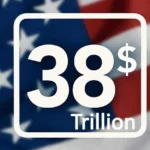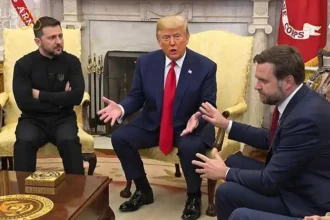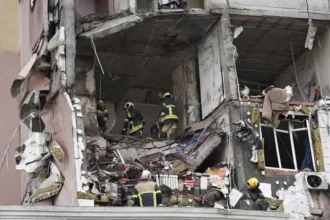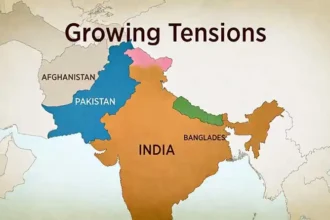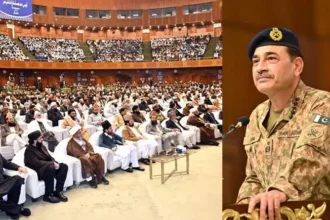The Economic Battlefield
In the dead of night, the front lines in Ukraine are lit by artillery fire and the drone of incoming missiles. But in the polished corridors of power in Washington, a different kind of warfare is being waged, one fought not with tanks, but with treasury departments.
This week, the United States unleashed its latest salvo in this economic conflict. The Trump administration imposed sweeping new sanctions on Russia’s two largest oil companies, Rosneft and Lukoil. This move strikes at the very heart of President Vladimir Putin’s ability to fund his ongoing war in Ukraine. It is an attempt to slowly choke the financial oxygen from the Russian military machine.
For months, the West has tried to curb Russia’s energy profits, the lifeblood of its economy and its war chest. But this new action goes further, deeper. It directly targets the giants that control the flow of Russian oil from the ground to the global market.
You Might like it: Trump’s Ukraine Border Plan Stuns Western Allies
The reaction from the two warring capitals was immediate and stark, a study in opposites that reveals the high stakes of this economic battle.
In Kyiv, the decision was met with a sense of grim satisfaction. Ukrainian officials have long argued that every dollar earned from Russian oil is converted into bullets, rockets, and bombs that kill Ukrainian citizens. For them, these sanctions are not just policy; they are a defensive weapon. “This is a crucial step towards peace,” a senior Ukrainian government advisor said, speaking on condition of anonymity. “The world is finally understanding that you cannot stop a war without stopping the money that pays for it.”
In Moscow, the response was one of furious defiance. The Kremlin immediately dismissed the sanctions as an “illegal act of economic war.” This language is not chosen by accident. By framing the sanctions as an “act of war,” Moscow seeks to rally domestic support and paint the West as an aggressor, justifying its own harsh measures and prolonged conflict.
This is the essence of modern geopolitical strife: a bomb landing in a Mariupol theater and a document being signed in a Washington office are part of the same brutal struggle.
So, what do these new sanctions actually do? In simple terms, they make it much harder for Rosneft and Lukoil to do business with anyone using the U.S. financial system or the U.S. dollar. Since the dollar is the currency of global oil trade, this is a massive blow. It freezes their assets in the U.S. and forbids American companies and citizens from dealing with them. More importantly, it sends a chilling message to banks and businesses around the world: work with these Russian energy titans, and you risk being cut off from the American financial system yourself.
The goal is to force a difficult choice onto America’s allies and other nations still buying Russian oil: find new suppliers or face secondary sanctions. It is a high-risk strategy. The global energy market is a complex web, and severing one of its largest threads could have unintended consequences, potentially raising gasoline and heating prices for consumers worldwide.
But from the Pentagon to the White House, the calculation is clear. The short-term economic discomfort for the rest of the world is a price worth paying to degrade Russia’s long-term capacity to wage war. Each day, the conflict in Ukraine consumes a staggering amount of money—for soldiers’ pay, for repairing destroyed equipment, for manufacturing new precision-guided munitions. By shrinking the pool of cash available to the Kremlin, the U.S. and its allies hope to slowly grind the Russian war effort to a halt.
The battle for Ukraine is being fought in the ruined streets of Bakhmut and the frozen fields of the Donbas. But it is also being fought on balance sheets and in oil markets. The new sanctions are a powerful new weapon in this shadow war. They will not end the conflict tomorrow. There will be no dramatic surrender triggered by a bank statement.
Yet, as the war drags on, this economic vise is designed to tighten. The question is whether Russia’s economy, and its people, can withstand the pressure longer than Ukraine’s soldiers can withstand the onslaught. The world is watching to see which front line breaks first.
Author: Junaid Arif
Date: 23 Oct, 2025
For More updates, Visit Newsneck




